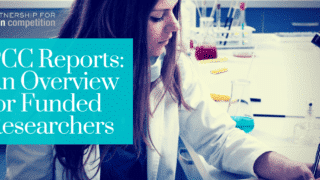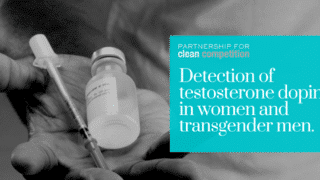If you’ve been wondering why the PCC distinguishes between ‘pre-apps’ and ‘full apps’, it’s because these unique applications have very different goals – and time commitments – associated with them.
The PCC pre-application is due on February 1st and August 1st of each year. It is designed to ensure a proposed project will meet basic funding requirements, such as alignment with the PCC’s research priorities and mission. This step also provides basic information related to the applicant’s research objective and scientific approach.
All pre-applications are evaluated by the PCC’s Scientific Advisory Board Co-Chair. If the project proposal showcases potential as a good contender for PCC funding, the pre-app will be approved, and the investigator may begin the full application, due March 1st or September 1st, depending on the cycle.
The pre-application process ensures that investigators do not spend unnecessary time completing the PCC’s time-intensive full application if their project will not be a good fit for PCC funding (for example, if the project does not align with PCC research priorities).
The pre-app addresses the following research related questions:
Basic Information
Project Title:
Direct Costs of Research:
Indirect Costs of Research:
Months to Complete:
Research Particulars
Research Objective:
How will this project contribute to the PCC Mission?:
Project Summary (maximum 200 words):
Scientific Project Proposal Abstract (including the approach that will be undertaken) (maximum 500 words):
Alignment with PCC Research Priorities
Please check all PCC priorities addressed by the research to be conducted:
- Developing methods of cost-effective testing to detect and deter the use of prohibited substances and methods.
- Developing novel testing protocols to detect new or designer substances or methods used to evade detection (e.g., micro-dosing) for doping purposes.
- Improving existing chromatography-mass spectrometry and other analytical chemistry or biochemical methods to detect particular drugs, ex. GH, IGF-1, EPO, hCG.
- Developing new analytical methods to detect performance enhancing drugs not currently detectable.
- Examination of pharmacokinetic/pharmacodynamics of doping substances through human administration studies examining longitudinal urinary excretion patterns, metabolism, and dose-concentration, including confounding factors that may influence excretion, detection, or performance-enhancing impact. This also includes studies which aim to differentiate between sources of contamination and doping by identifying novel and discriminate urinary or blood markers or metabolites, or ratios thereof, through well-designed human administration studies.
- Critical reviews to support interpretation of laboratory data.
- The application of alternative specimens (ex. oral fluid, dried blood/plasma spots), for testing and analysis.
- Discovery and validation of specific and sensitive biomarkers in urine and/or blood for the purposes of the Athlete Biological Passport (ABP) that aim to indirectly identify the use of doping substances or methods.
- Detection of prohibited gene doping, gene editing, gene silencing technologies, as well as the detection of prohibited stem cell therapies.
- Artificial intelligence, machine learning, and other related research that leads to optimization of anti-doping testing programs.
- Reference material synthesis and certification for WADA-accredited laboratories (new material or replacement of existing material).
- Development of effective quantitative and qualitative measures of doping deterrence and education through well-designed survey methods applicable to multiple athlete domains and social science research.




